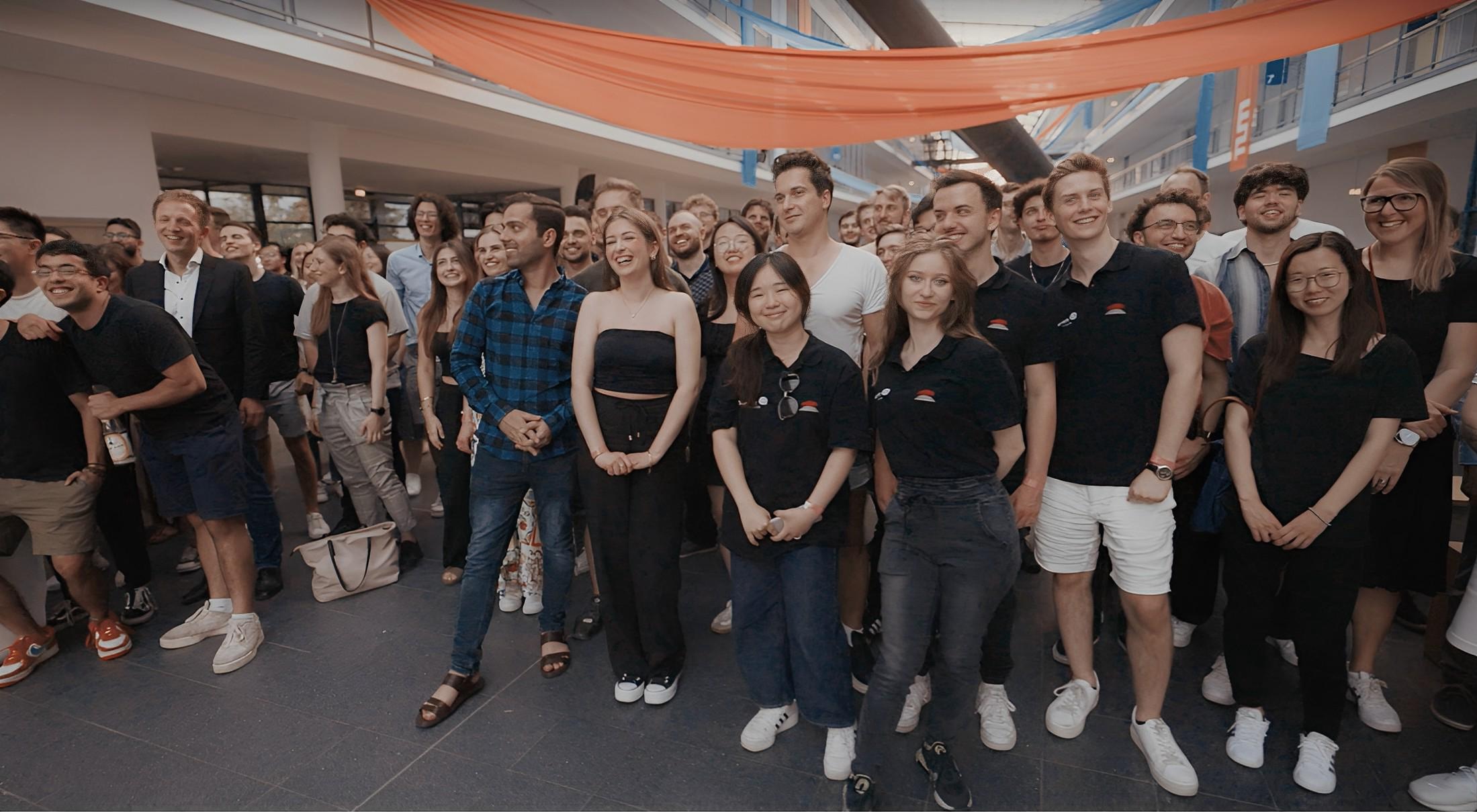- Research Group Team — Doctoral Seminar September 2024
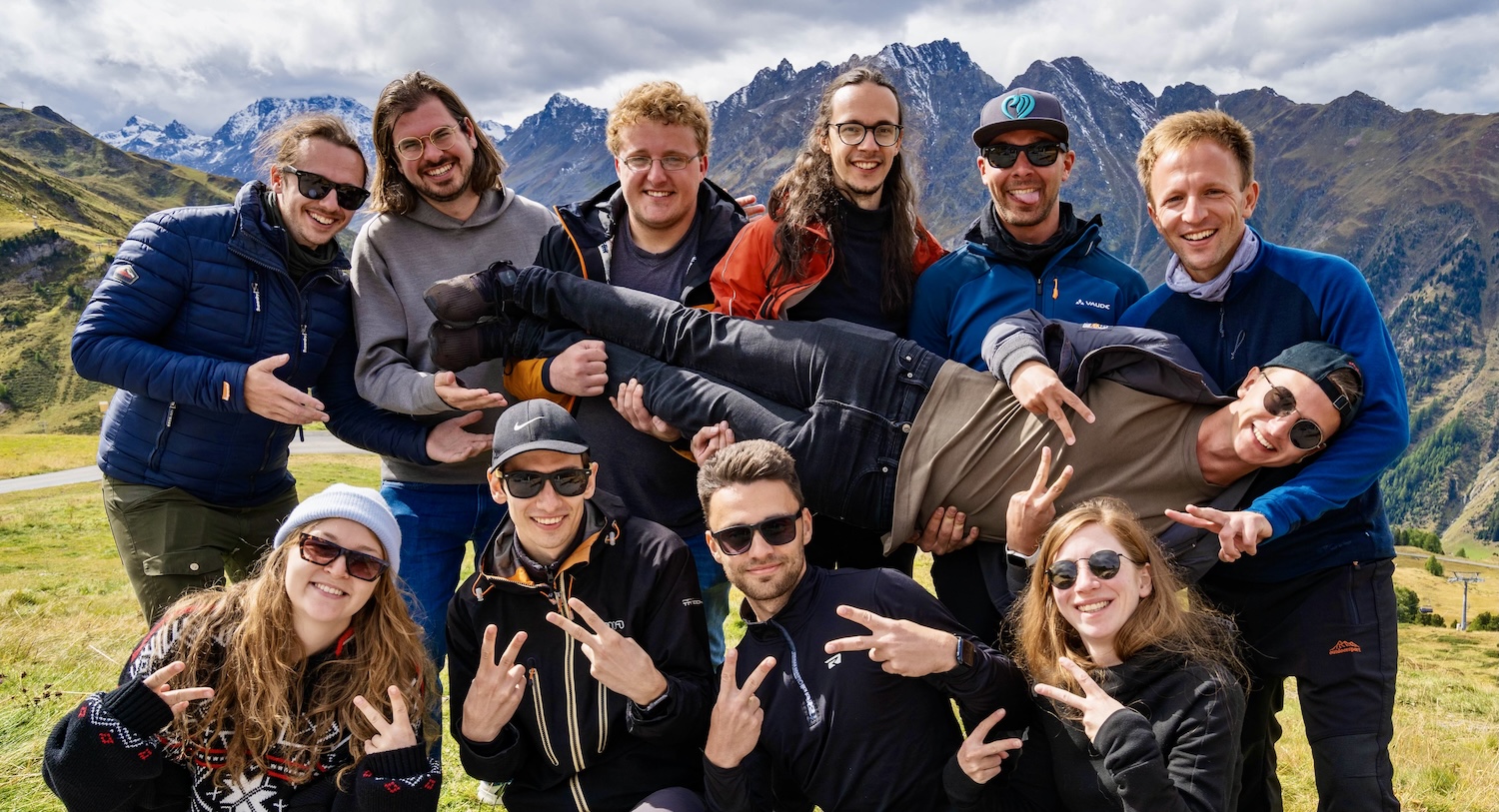
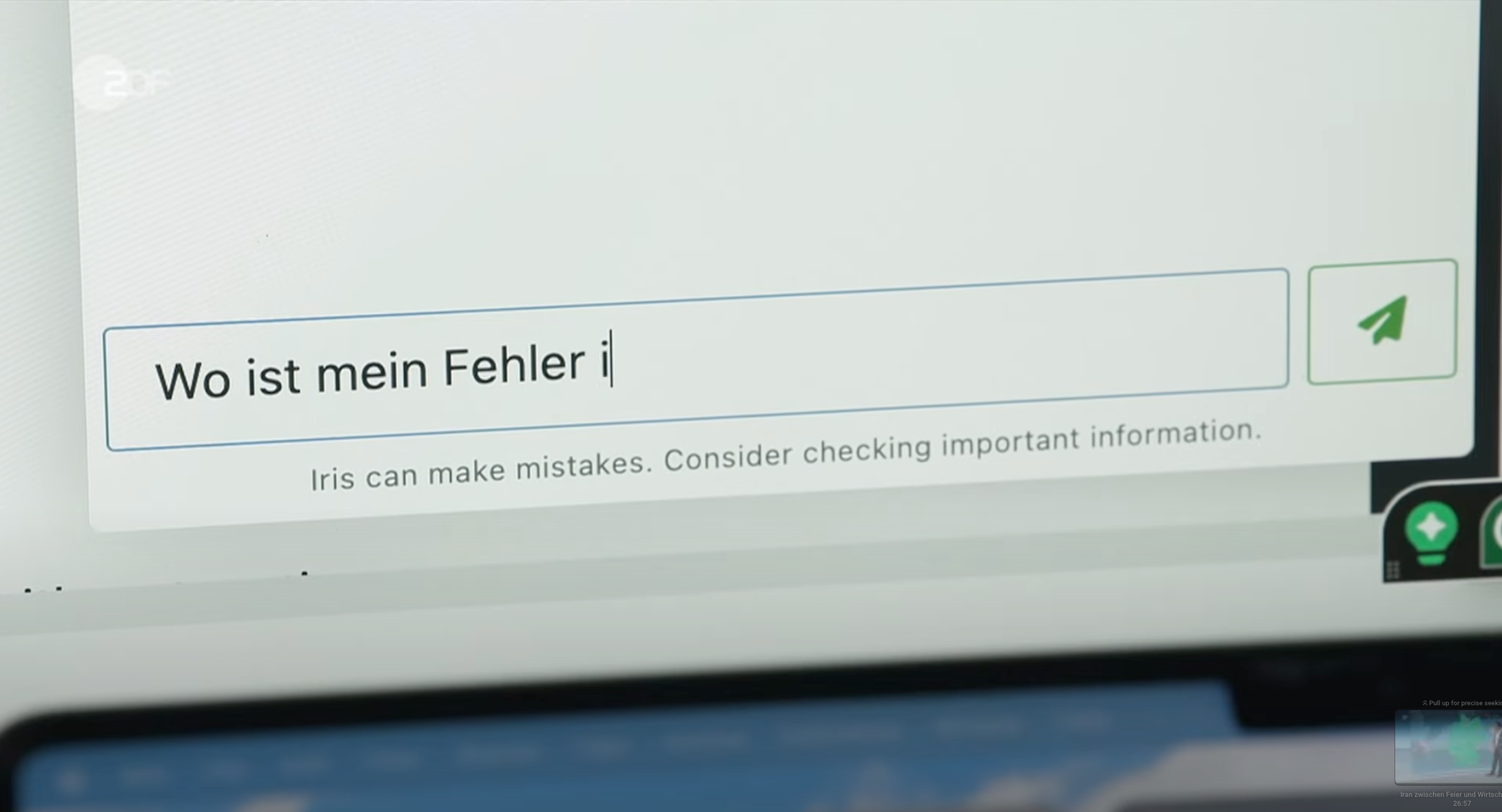
Iris, the AI-powered virtual tutor integrated into Artemis, was recently featured in a report on heute journal, the renowned news program on ZDF. The report highlights how Iris is transforming university education by offering AI-driven tutoring to students at the Technical University of Munich. Watch on AI Tutoring at TUM: How Iris Supports Students The report showcases how students use Iris as a virtual tutor to assist with programming assignments. Unlike traditional tutors, Iris is available 24/7, providing guidance through counter-questions and structured hints rather than directly delivering solutions. This method helps students enhance their problem-solving skills while maintaining active engagement in the learning process.

The Technical University of Munich (TUM) has honored Stephan Krusche with the Angela Molitoris Diversity Award. The prize recognizes outstanding achievements in the fields of equal opportunities, and diversity. The prize is awarded to TUM employees who are particularly committed to promoting women and strengthening diversity in science and teaching. The prize is named after Angela Molitoris (1912–2002), the first female syndic and first female chancellor of TUM, who was committed to the advancement of women in science throughout her life.
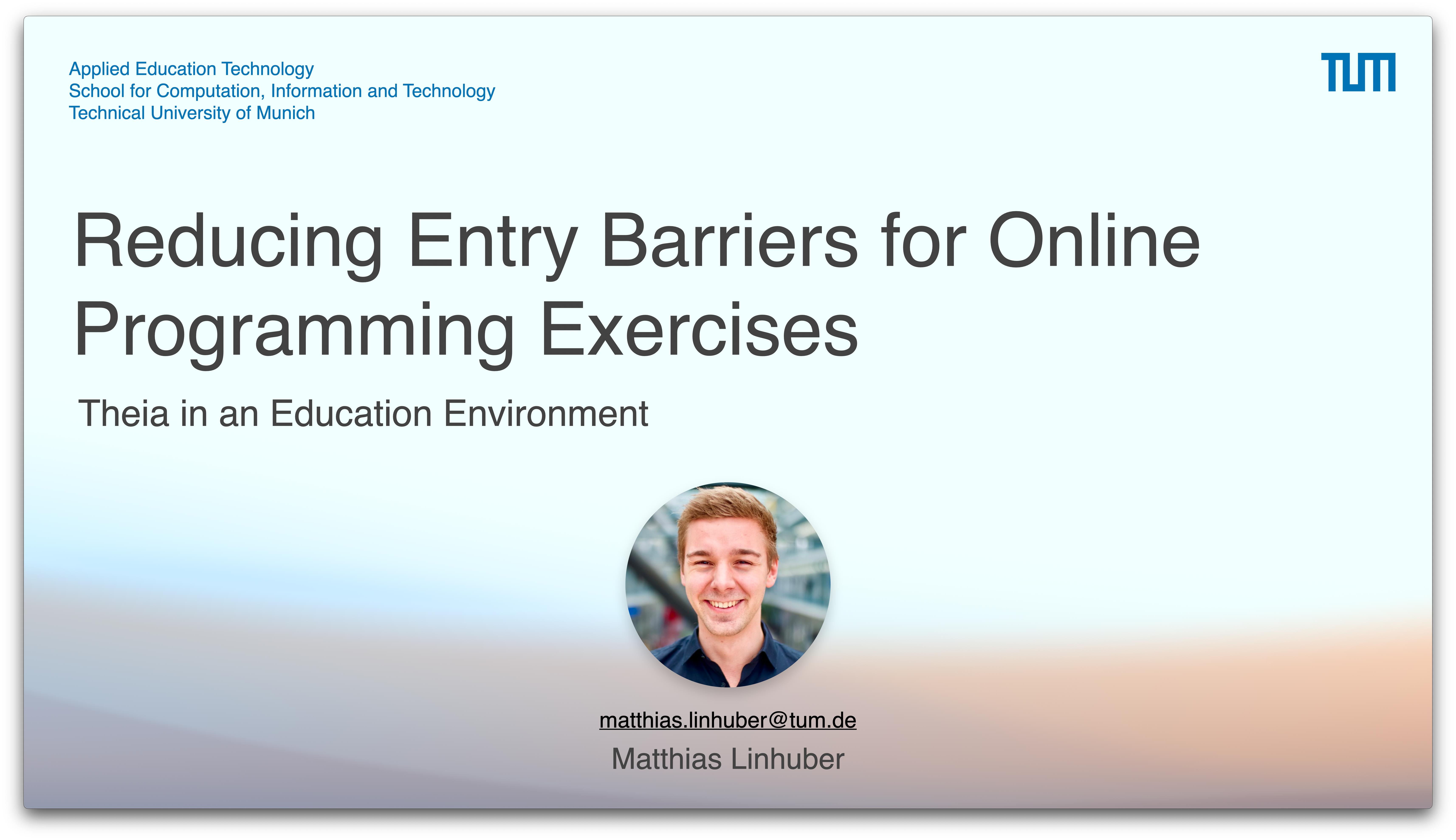
Matthias Linhber gave a presentation at the TheiaCon24 showing the integration of Theia and Theia Cloud within Artemis, demonstrating how it creates a scalable, secure, and highly customized learning environment for software engineering education. Abstract The growing complexity of advanced courses in software engineering often creates frustrating entry barriers for students unfamiliar with IDEs and programming in general. To address this, we utilize Theia within the online exercise platform Artemis to provide a cloud-based environment that simplifies setup and supports tailored learning experiences. Our approach includes tailored variants of the Theia IDE and a dedicated Artemis plugin that delivers real-time instructions and feedback, allowing students to concentrate on core competencies. By leveraging Theia Cloud’s scalable integration in Kubernetes, we provide a secure environment with precise resource allocation, enabling efficient terminal access and controlled execution for students.
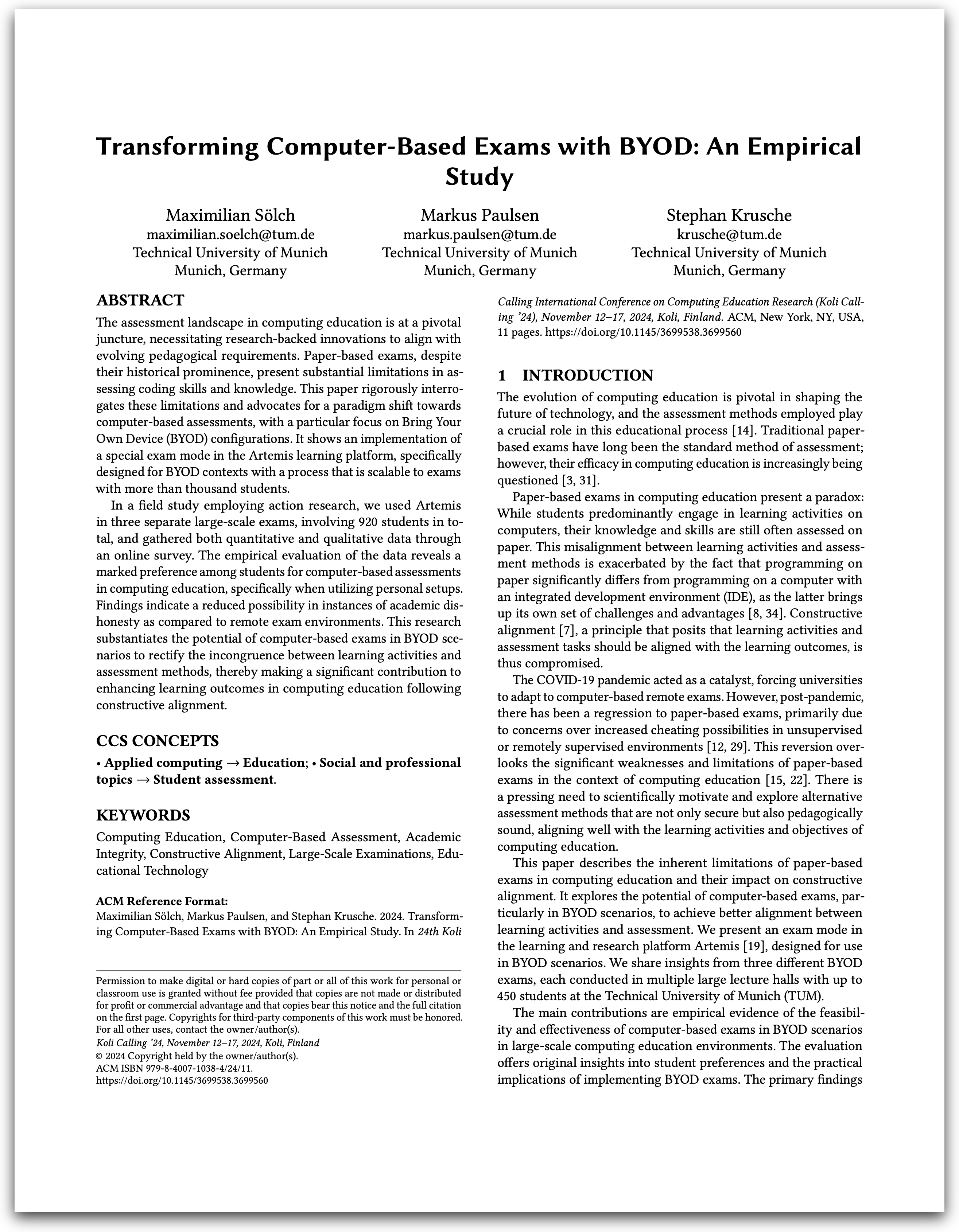
We are excited to announce that our paper, “Transforming Computer-Based Exams with BYOD: An Empirical Study,” has been accepted for presentation at the Koli Calling International Conference on Computing Education Research in Finland this year! This research tackles a pressing challenge in computing education: the constraints of traditional paper-based exams in assessing coding skills and technical knowledge. In response to these limitations, the study presents an innovative approach using Bring Your Own Device (BYOD) setups for computer-based assessments, supported by a custom-built “exam mode” in the Artemis learning platform. This feature is designed specifically for scalability, successfully handling exams with over a thousand students.

On August 19th, our research group hosted the first session of the GenAI Talks series at the ITüpferl in the MI Building. The event aimed at fostering connections among students, researchers, and industry professionals interested in Generative AI. The evening featured six insightful lightning talks, each lasting around five minutes, followed by lively discussions and networking opportunities. The diversity of topics covered—from biases in Generative AI to the intricacies of multimodal LLMs—sparked rich exchanges of ideas and set the tone for future sessions.

My iPraktikum journey was a big step forward, turning challenges into opportunities and sharpening my skills while making lasting professional connections. It highlights how hands-on learning can make a difference.

Students go through the ABCs of software development, mastering practical skills along the way. This is hands-on experience, not just theory.

The level of creativity and dedication was beyond expectations. Always nice to get fresh and challenging thoughts in, to share networks, and, most and foremost, to have fun together.
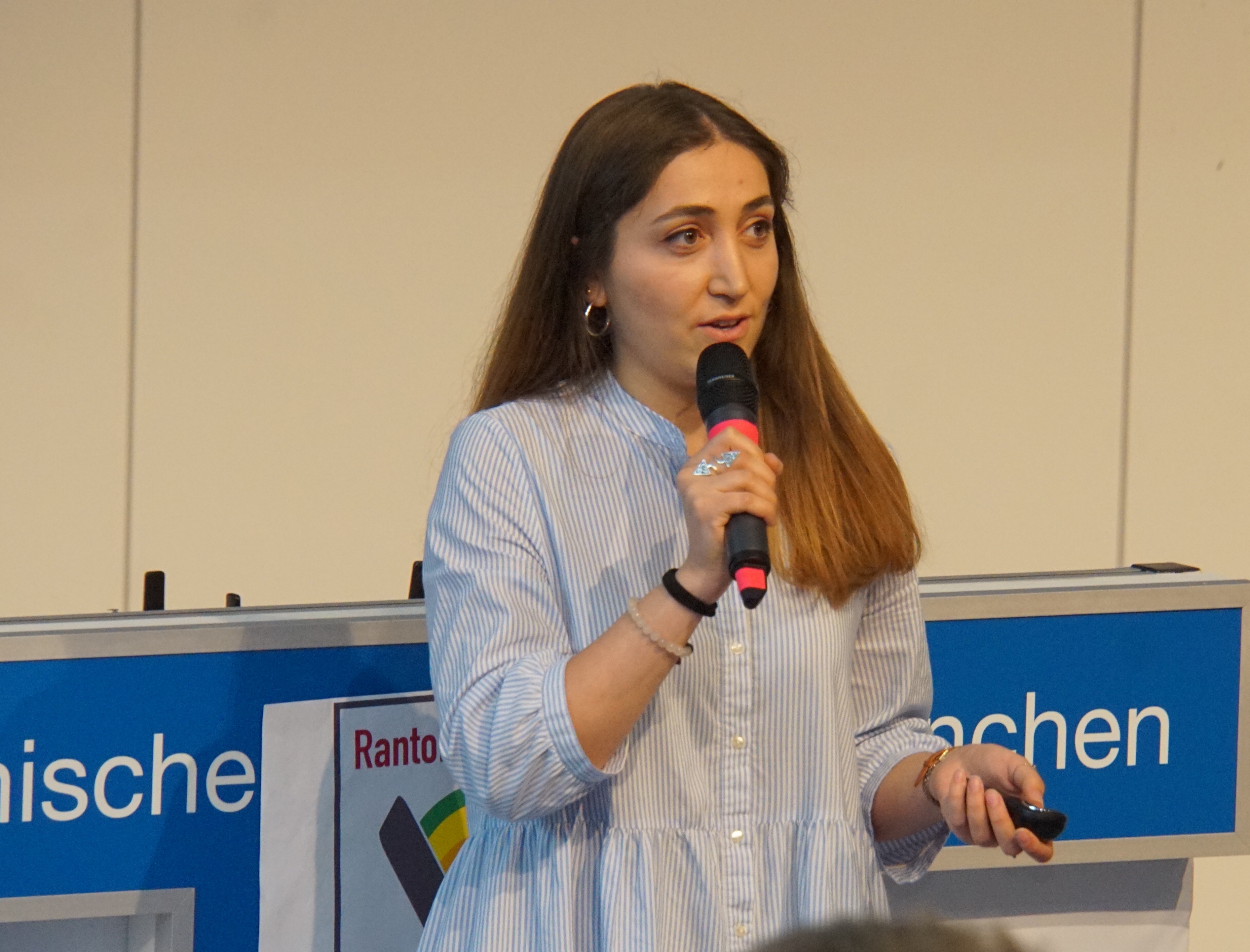
From hesitant beginnings to confident steps forward, my journey in iPraktikum marked a progression from student to team coach and project leader. Each semester was a chapter of growth, learning, and leadership.

I'm really proud about what the team has achieved. Having a fully-running production deployment running on our own infrastructure within 30 minutes from receiving their server codebase felt great!
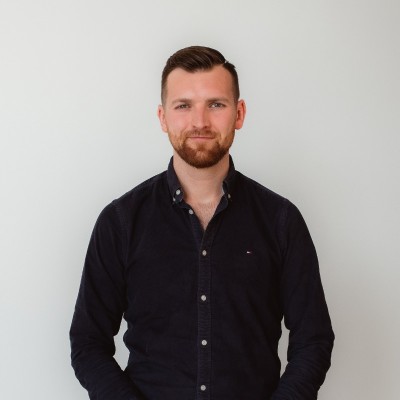
Great to see the impact of this fantastic university course. This course combines theory with practice and crafting valuable products.
The iPraktikum is a practical course centered around innovation. It covers mobile applications for smart devices, ranging from standalone applications, embedded systems including hardware and sensors to the design of modern interfaces for complex business applications.
Students learn and apply software engineering and usability engineering techniques. This includes object-oriented modeling and system design as well as the realization of graphical user interfaces, usability testing, continuous integration and continuous delivery.
Real industrial partners provide problem statements as clients. 8-12 companies participate in the iPraktikum every semester, each with a different problem statement and its own team. 60-100 students regularly participate and deliver these applications using agile techniques and communicating continuously to their clients.
